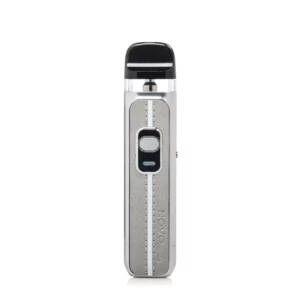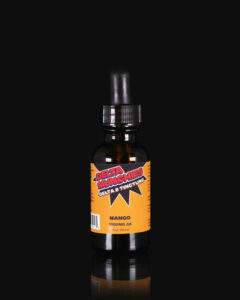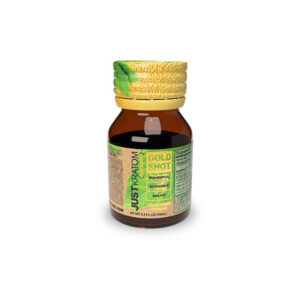As the benefits of CBD are becoming more widely known, many people are looking for more ways to use CBD, such as whether CBD can help Parkinson’s Disease. With this article, we look at recent studies and the science behind CBD to see how using CBD (Cannabidiol) may treat symptoms associated with Parkinson’s Disease.
CBD and Parkinson’s Disease: Does CBD Help Treat PD?
Parkinson’s Disease: An Overview of the Condition
Parkinson ’s disease (PD) is a progressive nervous system disorder causing difficulty in movement. It is the second most common age-related neurodegenerative disorder affecting about 10 million people in the world. The incidence of the disease condition tends to increase with age. Most of the confirmed diagnosis occurs within the first six decades of life. The prevalence of the disease is more common in men than in women. Information from research has shown that men are 1.5 times more likely to have Parkinson’s disease than women.
Parkinson’s disease starts off as a barely noticeable tremor in one hand, which spreads like wildfire to include other parts of the body. People with Parkinson’s disease typically experience tremors, which leads to slowing movement or stiffness during movement. During the early stages of the condition, it is common for the face not to show any sign of expression as you walk. As the disease progresses, the arms may stop swinging while you walk and speech will become slurred or soft.
Apart from the symptoms listed above, it is pertinent to note that our bodies tend to respond differently to the presence of PD. The early signs of the condition may go unnoticed while the symptoms continue to become more visible on one side of the body and remain worst on that side. Eventually, the symptoms may spread to include the other parts of the body. Some of the other commonly experienced symptoms of PD include but are not limited to the following;
- Experiencing tremors
- Bradykinesia (slowed movement)
- Rigid muscles
- Impaired balance and posture
- Loss of automatic movements
- Speech changes
- Writing changes
- Loss of smell
- Constipation
- Trouble swallowing
- Delusions
- Visual hallucinations
- Lack of judgment
- Difficulty concentrating
- Memory loss
Every year, about 600 000 Americans are diagnosed with PD. This number does not include the several thousand that go undetected. The number of people affected by PD is more than the combined population of those affected by muscular dystrophy (MD), multiple sclerosis (MS), and amyotrophic lateral sclerosis (ALS). These statistics alone show that the number of people affected by PD is high and may require an urgent approach to treatment.
Although PD cannot be cured, scientists have developed medications to assist patients in controlling the symptoms. These treatment measures may include aerobic exercises, lifestyle changes, physical therapy, speech therapy, and surgery (in extreme cases). These treatments try to keep the symptoms low and less vivid as possible. As scientists continue to explore new ways to help those with PD, research is being done to see how CBD may play an active role in assisting patients in living a healthy life.
CBD and Parkinson’s Disease
Parkinson’s Disease is a nervous system disorder hence serving as a potential target to the activity of CB1 cannabinoid receptors. CB1 receptors are found in the central nervous system and peripheral organs like the liver. CB1 receptors are the focus of many medical trials in the area of CBD activity.
There are several studies supporting the role of CBD in dealing with symptoms associated with PD. A research conducted by a group of Brazilian researchers revealed how CBD might reduce levels of anxiety and tremors associated with public speaking tests for people with PD. In this research, it was discovered that administering 300mg of CBD reduces the level of anxiety associated with public speaking.
The level of success recorded in that research was in accordance with the speculations that PD affects brain activity. During PD, the brain’s ability to produce the right concentration of dopamine is primarily affected.
In 2017, a group of researchers from the University of Louisville reported how CBD might act as an inverse agonist on CPR6 receptors predominantly found in the basal ganglia region of the brain. This region connects the cerebral cortex and brainstem, thus controlling functions such as emotion, learning, and movement in our bodies. The findings of this research show that CBD may possess an active activity on the symptoms of PD.
The role of the cannabinoid receptors in controlling cognitive activities cannot be overemphasized. They are responsible for modulating activities like memory, temperament, pain sensitivity, and hunger. These are the common activities affected by PD. There is a significant amount of evidence showing how CBD may assist in relieving tremors, insomnia, and psychosis. CBD may also reduce the chances of experiencing anxiety and depression. This was confirmed in scientific research conducted in 2015. The researchers were able to discover how CBD assisted people who were experiencing tremors and had difficulty sleeping. This level of activity is very important in maintaining motor functions in people suffering from PD.
Some of the other possible roles of CBD in PD may include but not limited to the following;
A. Triggering the release of feel-good hormones
CBD can interact with the GABA and serotonin receptors to improve focus and relaxation. This may assist people suffering from PD to maintain a good level of focus while reducing the levels of anxiety and depression.
B. CBD may trigger an internal balance
CBD possesses an excellent antioxidant activity capable of neutralizing the harmful effects of free radicals in the body. This can reduce the levels of activity of toxins in the body while encouraging natural immune responses to diseases.
C. Alternative to medications
There is a great level of research suggesting how CBD may serve as an alternative medication for sleep and pain relief.
Conclusion
There is an increased interest in the way CBD may serve as an alternative medication for pain relief and other disease conditions. For now, CBD is an endorsed treatment for seizures, and with time, we hope to see more approved CBD treatments and medicines from the FDA.
CBD is excellent at interacting with both endocannabinoid receptors capable of modulating cognitive activities. This level of interaction may also play a significant role in managing diseases like PD. The non-psychoactive nature of CBD makes it a great candidate for more clinical and scientific research in the area of drug development and management of disease conditions.
In today’s world, people’s eating and exercise patterns have changed, and it is often lifestyle that is the cause of many diet-related illnesses. I believe that each of us is unique – what works for one does not help another. What is more, it can even be harmful. I am interested in food psychology, which studies a person’s relationship with their body and food, explains our choices and desires for specific products, the difficulty of maintaining optimal body weight, as well as the influence of various internal and external factors on appetite.
- Expedition Series by Vessel: Your Ultimate Adventure Companion – A User’s Review - October 7, 2023
- The Ultimate Review of Top CBD Topicals Unveiling the Finest Options - August 5, 2023
- The Top CBD Tinctures Comprehensive Review and Rankings - August 5, 2023












![Expedition - Trail Edition [Black]](https://atomicvaporstore.com/wp-content/uploads/2023/10/Expedition-Trail-Edition-Black-300x300.webp)





